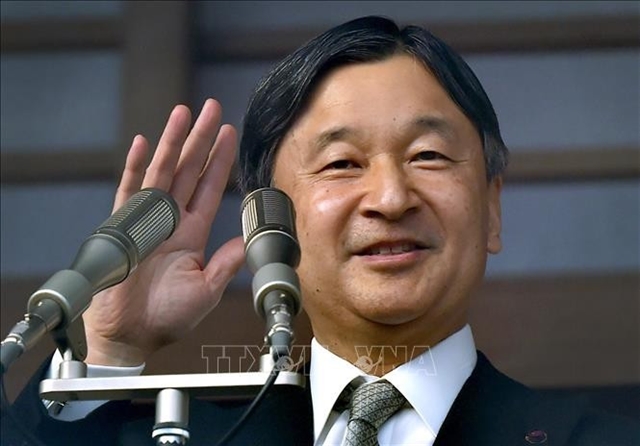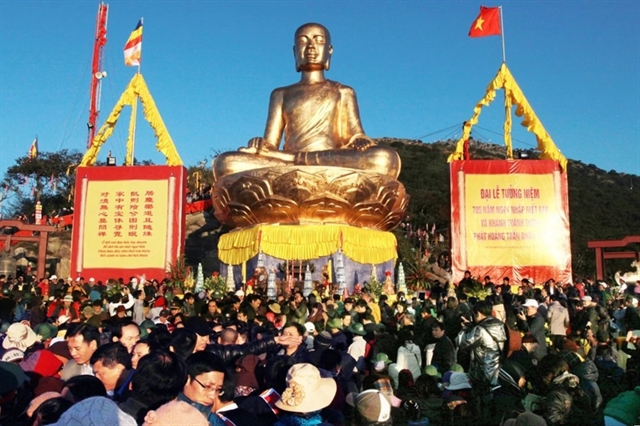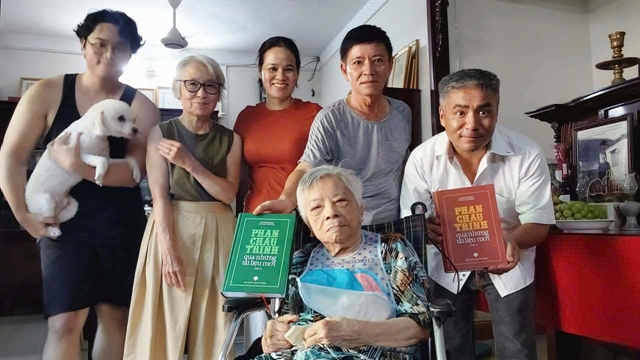 Politics & Law
Politics & Law

National Assembly (NA) General Secretary Bùi Văn Cường talks to the Việt Nam Government Portal (VGP) on the preparations and highlights of the upcoming election of deputies to the National Assembly and People's Councils of all levels for the 2021-26 tenure.

|
| Panels on the election of deputies to the National Assembly and People's Councils of all levels for the 2021-26 tenure in the northern city of Hoà Bình. — VNA/VNS Photo Trọng Đạt |
National Assembly (NA) General Secretary Bùi Văn Cường talks to the Việt Nam Government Portal (VGP) on the preparations and highlights of the upcoming election of deputies to the National Assembly and People's Councils of all levels for the 2021-26 tenure.
With barely a month remaining until the general election, how are the preparations coming on so far?
As per the Politburo’s instructions in Directive No. 45-CT/TW, authorities from central to local levels have issued documents guiding the electoral preparations, covering issues such as the composition, number, and structure of NA deputies and representatives at People’s Councils at all levels to issues such as professional guidance, communication and publishing information, and ensuring security for the election.
Up to now, three rounds of consultations have been completed as well as an official list of people who are eligible and qualified to run for seats at the NA and People’s Council at all levels for the term 2021-26.
After the 3rd consultation conference, the National Election Council (NEC) has submitted the list of candidates nominated by the central agencies to their respective localities so that the provincial election committee would post the list of candidates in each constituency.
To ensure that the election preparations in localities are conducted legally, democratically, economically, and safely, the Standing Committee of the NA and NEC have issued a plan on supervision, which is held mostly from March to before the date of the election (May 23, 2021).
So far, 14 working groups have been sent to 40 localities to assess the preparations and evaluation of all 63 localities are expected to wrap up before May 20.
All contents related to the preparation of elections are considered and discussed by the NA in accordance with the principles of democratic centralism and majority decision. Since the start of the election cycle, the NEC has conducted a total of five plenary sessions.
What are the notable highlights in this election?
I would say that there are three major new highlights in this election.
First, preparations are being conducted quite early, including the leadership and the members of the NEC along with the subcommittees, have started earlier than previous elections, which help arrive at timely completion of core basis for the implementation of the preparations for the election.
The second major highlight is the new regulations in the make-up and the number of NA deputies and People’s Council representatives in line with the Law on the Organisation of the National Assembly (revised in 2020) and the Law on the Organisation of Local Administrations (revised in 2019). Accordingly, the number of full-time NA deputies has gone up 40 per cent of the total, while the number of representatives at the People’s Councils decreases by five to ten depending on each level of government and each type of administrative unit. The eligible age has also been reworked to accommodate the labour ministry’s new roadmap on retirement age provided in the Labour Code 2019 (which takes effect on January 1, 2021).
Third, the election is held while the threats of COVID-19 outbreaks are still very present and preparations have been made accordingly. Evaluation of the preparations in localities showed that even though they have planned for scenarios when there is local outbreaks, the prevention and control efforts still need to be prioritised and guards must not be let down to ensure the election is held safely and efficiently. This has been the first time health protocols have been integrated into security preparations.
The increase in full-time NA deputies is expected to help improve the quality of the NA. What are your thoughts on this?
NA deputies are the key factor deciding the performance of the parliament and the increase from 35 to 40 per cent with regards to full-time deputies aims to enhance the capacity of the NA.
However, in addition to increasing the number, the quality of these full-time deputies should also be a priority. Personnel planning issues have been discussed and prepared by the Party Committee of the NA on an annual basis with the principle of “dynamic” and “open” to let NA bodies enjoy certain initiatives and freedoms in the selection of the full-time deputies for the 15th tenure, but still the selection is carefully and meticulously done to ensure standards and regulations are met.
An instruction document on personnel for the 15th-tenure NA and People’s Committee released earlier this year from the Party Central Organisation Commission stated that other general standards for NA deputies, the full-time deputies must also meet criteria on education (holding a bachelor’s degree or above), age, health, and working positions, etc.
Could you tell us the expectations and duties placed on the NA deputies to contribute to the realisation of the aspirations for 2045, and guiding Việt Nam to the group of prosperous, developed nations?
There are two more decades left until 2045, a major milestone, or five working tenures of elected representatives.
To realise the development goals in 2045, the stepping stones must be laid by the incoming deputies.
The first and foremost task of each NA deputy is to perform the function of representing the people and the local voters who elect them to the post, as well as representing the people of the entire country. The task of a NA deputy is also to properly and well perform the responsibility of keeping in close contacts with the constituency, regularly meet with voters to listen to their opinions and expectations and concerns, and honestly and timely convey them to the parliament. NA deputies are also expected to receive, study, and request competent agencies to deal with voters’ petitions, complaints and denunciations, follow up and facilitate the settlement. They also have the duty to inform the constituency of their activities and are subject to their supervision.
In addition, NA deputies must be constantly improving their professional capacity, political and bravery mettle/fortitude in order to concretise the Party’s policies and resolutions in law building, supreme supervision, and decisions in the country’s major affairs, and to coordinate with State agencies in formulating national policies on socio-economic development, upholding national defence and security, and social security issues for the people nationwide. — VNS



_med.jpg)
